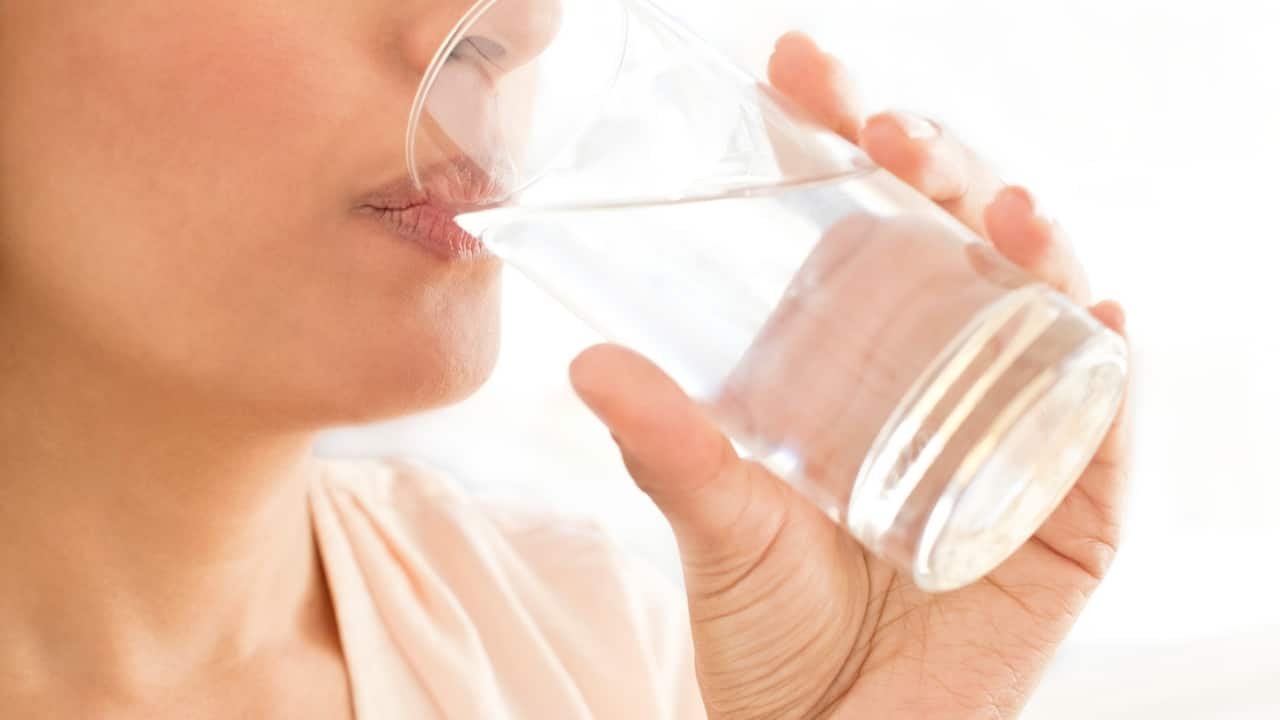How much water to drink: Boost energy, skin health, digestion with these hydration tips



Dehydration over the long term can lead to constipation, low energy and brain fog. (Image: Canva)
For years, people have believed you needed eight 8-ounce glasses of water every day, also known as the “8×8 rule.” However, recent research has found that everybody has different water needs, and the water requirements depend on body size, activity level, and diet.
As a general guideline, men need 3.7 litres of water, while women should drink 2.7 litres daily, including all fluids consumed. However, this is only a rough estimate, and various factors, such as the level and duration of exercise, climate, and certain health conditions, may raise your particular needs.
Story continues below Advertisement
= 768 && (adKey.indexOf(“Moneycontrol”) != -1) && (adKey.indexOf(“Moneycontrol_Mobile_WAP”) = 768 && (adKey.indexOf(“MC_ENG_DESKTOP”) != -1 ) && (adKey.indexOf(“MC_ENG_PWA”) < 0) ){ setTimeout(function() {googletag.cmd.push(function() { googletag.display("MC_ENG_PWA/MC_ENG_PWA_NEWS/MC_ENG_PWA_NEWS_AS/MC_ENG_PWA_ROS_NWS_AS_ATF_300") });}, 2000); }if (width
It’s important to listen to your body. “Thirst is a natural indicator that your body needs more fluids,” says Francesca Alfano, a functional integrative nutritionist, on an American news channel.
Here’s why water is important to your body and some tips to ensure you are meeting your daily quota:
What happens when you don’t drink enough water?
Keeping a good fluid balance is beneficial for overall health and wellness. Your body needs good hydration to wake up well. Water also helps regulate body temperature and supports digestion. It keeps your skin healthy and boosts energy levels.
Lack of water can lead to constipation, low energy, brain fog, headaches, and dry skin. If dehydration goes on for a long time, it can cause more critical health issues, such as kidney stones, urinary tract infections, and heat-related illnesses.
How to reach your daily water needs
Story continues below Advertisement
= 768 && (adKey.indexOf(“Moneycontrol”) != -1) && (adKey.indexOf(“Moneycontrol_Mobile_WAP”) = 768 && (adKey.indexOf(“MC_ENG_DESKTOP”) != -1 ) && (adKey.indexOf(“MC_ENG_PWA”) < 0) ){ setTimeout(function() {googletag.cmd.push(function() { googletag.display("MC_ENG_PWA/MC_ENG_PWA_NEWS/MC_ENG_PWA_NEWS_AS/MC_ENG_PWA_ROS_NWS_AS_BTF_300") });}, 2000); }if (width
Morning start: Begin your day by drinking a glass of water to kickstart your metabolism. You can infuse your water with lemon, cinnamon powder, carom, fennel, or fenugreek seeds in order to further aid digestion.
Carry your water everywhere: Try to always have a reusable water bottle handy. This will remind you to drink more. Remember, if you’re thirsty, it means you’re already dehydrated.
Set reminders: There are several apps that can help you reach your daily water goals. Setting a reminder on your phone can also prompt you to drink water at regular intervals.
Also see | Health benefits of cucumber: Reduce cholesterol, maintain strong bones with these recipes
Eat more water-rich foods: Enjoy fruits and vegetables that have a large water component, for example, cucumbers, watermelon, oranges, and strawberries. Broth-based soups and stews can also contribute to your daily fluid intake.
Monitor your hydration levels: Check the colour of your urine to ensure it is light or colourless. Pay attention to signs of thirst and adjust your water intake accordingly.
Also, adjust your water intake based on your activity and the climate. Drink extra water before, during, and after any physical activity, and drink more water when it’s hot. It’s easier than you think to reach your daily hydration goal. You just need to be more mindful of your body’s cues and stay consistent.





